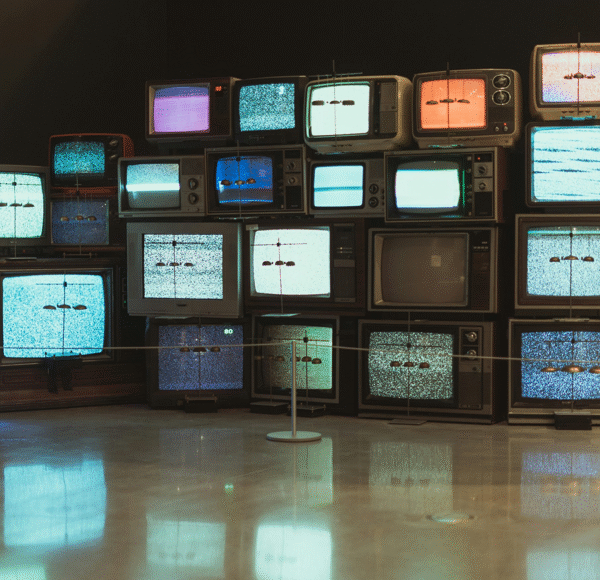Is AI an enabler for writers or is it an enticing toy that’s a fad when it comes to quick and dirty content creation? Here are few thoughts.
They say you can’t teach an old dog new tricks. As I turn a new leaf as a writer, the new trick every one murmurs under their breath is AI.
There are two sides of the table. On one side are the folk who believe that AI can do our creative writing jobs just as good as we can. On the other side are the folk who have been creating ideas and content for years or who aspire to for the years ahead. Whichever side you sit on the table, or whether you think AI will go the way the Bitcoin fad has, one thing seems clear. We are reaching that tipping point when it comes to writing and AI. Two key factors that contribute to this lovely soup is the rapid progress in LLMs and the global uncertainty of added tariffs and IT layoffs. The writing on the wall is that for the bean counters the role of the traditional copywriter is being seriously devalued. I an sure the effects of this is seen in what freelancers can command as day rates, or the shrinking sizes of in-house team. Writing teams as an investment are at risk. Writing as a career is evolving. The need of the hour has always been to produce more for less. AI seems to be the perfect solution for this. Too good to be true. A golden goose.
It can be disheartening for some when they hear the highest echelons whisper – why don’t they just use Chat GPT for that? Young writers bemoan that they are tasked with checking AI recommendations, while AI is stealing the work that they want to be doing – the creative work. Instead of wracking their brains on churning up creative headlines and body copy, they are tasked with being the ‘human in the loop’ correcting what are at times absurd suggestions by AI.
Yet the truth is that the role of human fact checking is now super critical. Case in point – the news of Deloitte’s AI hallucination error , where the company’s Azure Open AI solution was used in compiling a report for the Australian government, and it allegedly citied references to non-existent academic research and fabricated quotes. What is scary about the story is that the 237 page report was finally published before someone spotted the errors.
One may think that AI isn’t good at story telling. However – the irony could be that like the above example, would we know whether AI is telling us fact or fiction. Would we even stop and check? Would we care?
Why should people turn to AI for writing?
Let’s take a step back. I would think that to explain how AI tackles copy, one should look at the Chinese Room problem to better understand it. Basically it boils down to a permutation combination approach of problem solving. This is what writers do too. They are a sum of all the content that they have consumed, which they draw inspiration from when creating their own content. Progress in LLM models today tout the ability to factor in context and consistency into their equations. Which makes them in theory on par with writers, while having greater depths of inspiration to draw from.
I recently reviewed a stellar designer’s portfolio and felt that the cover of their portfolio was missing a headline that could draw people in. A missed opportunity that I was quick to point out. The person wasn’t a writer. I genuinely thought they may tap into a writer friend or two to help them. They instead turned to Perplexity. The resulting headline, I have to admit, was able to succinctly capture the essence of this designer’s work ethic. It was a headline that had me give it a second look and marvel at it for a moment. Once I knew it was written by AI I did scrutinise it further and started to second guess whether it could have been better. But truth is, at first glance, I have to say it did the job. The world of writing has changed.
AI the proof reader and grammar guru
One would think that those who write for a living would have a better command of the nuances of English grammar. This isn’t necessarily true – there are some writers who can instinctually write well in a way that tick marks all those grammar boxes without cracking open a grammar book like Wren & Martin or delving deep into the Chicago Manual of Style. The best writers and proof readers know their grammar and style rules like the back of their hand. This is hard earned experience. Today AI helps level the playing field partially. Ask an AI like CoPilot to proof any content piece against your grammar or style book of choice and it can provide you a line by line analysis that you can cross check. What’s more take a screenshot of anything and AI will OCR the text and proof it for you. I remember the evenings when I had to proof entire product brochures for Mercedes-Benz with nothing but my trust red pen and a stack of print outs. AI will help be that second pair of digital eyes for writers out there.
AI the force multiplier
What I do believe is that writers need to turn to AI to help in their prep work. Been inducted into a new global brand? Use AI to create a content style guide – it will work with content that is actually on their site to build out complete grammar syntax rules that you can use to phrase. With the right prompts, this can be better than any brand style guide because it’s not what is an idealised state but built on real life content. It can even help you rephrase for tonality. AI can be used to generate quick and dirty competitive content analysis. But with the right ideas, you can make this work for you. Here’s an example. What truly impressed me recently was the ability of Chat GPT to understand a particular brand and then create riddles for the same. These demonstrated an understanding of both the English language and the brand in question and the results with some prompt tweaking was done in a fraction of the time. That said – you did need a writer to come up with the idea in the first place. This is the role that I see AI plays. An enabler. A force multiplier. There will be writers who integrate AI smartly into their workflow where needed and they will edge ahead. The writers though who use AI as solely the only way to generate content – may have some problems in the long run once inspirations for those prompts run dry.
The dawn of legendary AI content creator of old avatars?
Recently Indian Ad Land lost one if it’s most renowned creatives. Nobody would begin to think that an AI could be a substitute for his creativity. The mere thought, would surely seem sacrilege. Shouldn’t it? Yet we did also see how the husband of Suzanne Summers (with her consent) has created an AI avatar of his late wife. There is news about the AI actor Tilly Norwood. Could we not then have AI twins of all the advertising greats? Or use their aquired knowledge to create a super advertising A LLM trained on past work that can on fly create advertising copy that emulates the greats? Could they live on to act as virtual guides for new talent inducted into their agency halls. Imagine being able to run your idea by David Ogilvy or Bill Bernbach and see what they say about it? This would be a huge selling point because it resurrects expertise of old. It’s a coin toss whether this thought is romantic or frightfully Frankenstein in nature.
I would like to think this wouldn’t work, because advertising is about making new connections given new contexts. It remains to be seen if the creative DNA of the greats could be encoded in a way it stays relevant to the times. Creativity is always born of real world contexts, shared experiences. Take for example the cheeky ad placed by the German lift company Böcker whose crane was used in the recent Louvre heist. “When you need to move fast, the Böcker Agilo transports your treasures weighing up to 400kg at 42m/min – quiet as a whisper.” Could an AI make that connection and write copy that’s relevant. I am not sure we are there yet. Could an AI conceive of this idea?
It’s enticing thinking to say that AI will cut down content production efforts by half and make this cheaper. That it may make copywriting obsolete. I still think that there will be humans who drive the creativity forward. AI being it’s new shiny toy. What I do foresee is that output may increase initially, but soon there may be a problem of same-same but different. Just like most writers come up with similar ideas when tacking a brief – they may come up with similar prompts and thus similar results initially.
Human in the loop is the differentiator
Differentiation will still be key. And we will need humans to achieve that. The way we produce some kinds of content will get reshaped. While some will go untouched. Take DC Comics bold stance to say they would not support generative AI content ever. Story telling will still remain at the heart of what we do. Getting people emotionally involved in the story will still be something that only humans with heartstrings will do best. And writers and content creators will get smarter at how they have AI in the loop in making this possible.

